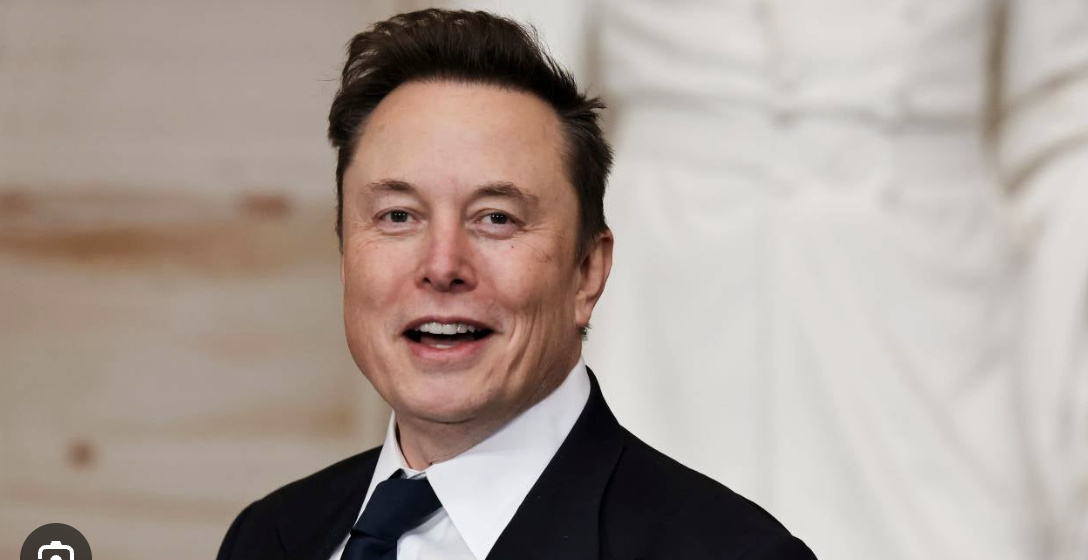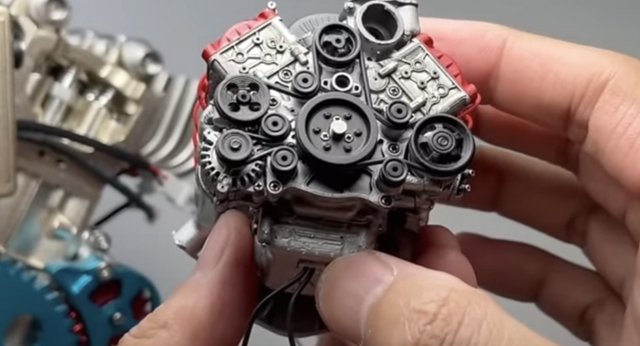Elon Musk’s Career Success: An MBTI Analysis of His INTJ Traits

Elon Musk stands as one of the most influential and polarizing figures of the 21st century. From co-founding PayPal to leading Tesla, SpaceX, Neuralink, and The Boring Company, his career is a testament to relentless ambition, innovative thinking, and an unwavering pursuit of groundbreaking goals. To understand the roots of his success, we can turn to the MBTI framework, which provides a lens to examine how personality traits shape behavior, decision-making, and leadership. Based on widespread speculation and observable traits, Musk is often typed as an INTJ—a personality characterized by strategic vision, intellectual rigor, and a drive to solve complex problems. This analysis will unpack how the INTJ traits of introversion, intuition, thinking, and judging manifest in Musk’s career and contribute to his remarkable achievements.
Introversion: The Power of Internal Focus
The first dimension of the INTJ type, introversion, refers to a preference for internal reflection over external stimulation. Introverts like Musk tend to recharge through solitary activities and often exhibit deep concentration and independence in their thought processes. While Musk is a highly public figure, his introversion is evident in his approach to problem-solving and innovation, which often stems from a solitary, introspective mindset rather than a reliance on external validation or group consensus.
Musk’s introversion is reflected in his early years as a self-taught programmer and entrepreneur. Born in Pretoria, South Africa, in 1971, Musk was a voracious reader who immersed himself in books ranging from science fiction to technical manuals. This introspective nature allowed him to develop a profound understanding of complex systems—skills he later applied to coding his first video game at age 12 and founding Zip2, an online city guide software company, in 1995. Unlike extroverted leaders who might thrive on networking or public charisma, Musk’s success with Zip2 (sold to Compaq for $307 million in 1999) came from his ability to quietly master technical details and envision a product that addressed emerging internet needs.
This introverted focus also shines through in Musk’s leadership at SpaceX and Tesla. At SpaceX, founded in 2002 with the audacious goal of reducing space travel costs and colonizing Mars, Musk is known for diving deep into engineering challenges alongside his team. His hands-on approach—reviewing designs, questioning assumptions, and working late into the night—demonstrates a preference for internal problem-solving over delegating without scrutiny. Similarly, at Tesla, where he became CEO in 2008, Musk’s meticulous attention to production processes, such as optimizing battery technology or rethinking manufacturing lines, reflects an introvert’s strength in sustained, solitary focus. This trait enables him to tackle problems that others might deem insurmountable, turning abstract ideas into tangible realities.
However, introversion can also present challenges. Musk’s tendency to retreat into his own world has, at times, led to perceptions of aloofness or detachment from his teams. Yet, his ability to harness this trait for deep intellectual work outweighs such drawbacks, allowing him to maintain a laser-like focus on his long-term visions.
Intuition: Vision Beyond the Present
The second INTJ trait, intuition, emphasizes a preference for abstract thinking, patterns, and future possibilities over concrete, immediate realities (sensing). Intuitive individuals like Musk excel at seeing the “big picture” and imagining what could be, rather than being confined by what is. This forward-thinking mindset is perhaps the most defining factor in Musk’s career success, as it drives his penchant for pursuing ventures that others dismiss as impractical or futuristic.
Musk’s intuitive nature is clearest in his choice of industries: space exploration, electric vehicles, artificial intelligence, and infrastructure. When he founded SpaceX, the idea of a private company competing with national space agencies like NASA seemed far-fetched. Yet Musk envisioned a future where humanity becomes a multiplanetary species, a goal rooted in abstract possibilities rather than current capabilities. This intuition paid off when SpaceX achieved milestones like the first privately-funded spacecraft to reach orbit (Falcon 1 in 2008) and the development of reusable rockets (Falcon 9), drastically lowering the cost of spaceflight.
Similarly, Tesla’s mission to accelerate the world’s transition to sustainable energy reflects Musk’s ability to anticipate long-term global needs. In the early 2000s, when Musk joined Tesla as an investor and later CEO, electric vehicles were niche and unproven. His intuition told him that fossil fuels were unsustainable and that battery technology would eventually disrupt the automotive industry. Today, Tesla’s market dominance and innovations like the Gigafactory underscore how Musk’s focus on future trends—rather than present limitations—propelled the company forward.
This intuitive approach also extends to Neuralink and The Boring Company. Neuralink, founded in 2016, aims to merge human cognition with artificial intelligence—a concept grounded in Musk’s foresight about AI’s potential to outpace human capabilities. The Boring Company, launched in 2016 to revolutionize transportation through underground tunnels, tackles urban congestion with a vision that transcends conventional infrastructure solutions. In each case, Musk’s intuition allows him to identify problems years before they become mainstream concerns, positioning his companies as pioneers.
Of course, intuition can lead to overambition. Projects like the Hyperloop or Mars colonization have faced skepticism due to their speculative nature. Yet Musk’s track record suggests that his intuitive leaps, though risky, often yield transformative results over time.
Thinking: Logic Over Emotion
The third INTJ trait, thinking, prioritizes objective analysis and logic over emotional considerations. Thinkers like Musk make decisions based on data, reason, and efficiency, even if those choices are unpopular or controversial. This trait underpins Musk’s ability to navigate high-stakes industries, make bold strategic calls, and push through adversity with unwavering rationality.
One of Musk’s most striking displays of thinking is his approach to cost reduction at SpaceX. Traditional aerospace giants relied on expensive, single-use rockets, accepting high costs as an industry norm. Musk, however, applied first-principles reasoning—a method he often cites—breaking problems down to their fundamental truths. He questioned why rockets couldn’t be reusable and calculated that recovering and refurbishing them could slash launch costs. This logical rigor led to the Falcon 9’s reusable design, a breakthrough that disrupted the space industry and secured SpaceX contracts with NASA and private clients.
At Tesla, Musk’s thinking trait is evident in his relentless optimization of production. When faced with supply chain bottlenecks or manufacturing delays, such as during the Model 3 rollout in 2017-2018, Musk didn’t shy away from tough decisions. He slept on the factory floor, scrutinized every process, and even fired senior executives to streamline operations. While this approach drew criticism for its intensity, it turned Tesla from a cash-burning startup into a profitable juggernaut, with a market valuation surpassing traditional automakers like Toyota and Volkswagen.
Musk’s thinking preference also fuels his contrarian streak. When he tweeted in 2018 that he was considering taking Tesla private at $420 per share, sparking an SEC investigation, his decision was rooted in a logical belief that public markets undervalued Tesla’s long-term potential. Though impulsive, the move reflected his confidence in data-driven conviction over emotional appeasement of shareholders.
The downside of this trait is Musk’s occasional bluntness or disregard for interpersonal dynamics. His infamous “funding secured” tweet and public spats, like calling a British diver a “pedo guy” during the 2018 Thai cave rescue, highlight how his focus on logic can overshadow Emotional Intelligence. Nevertheless, his thinking-driven resilience—seen in SpaceX’s recovery from multiple rocket failures or Tesla’s survival of near-bankruptcy—demonstrates why this trait is a cornerstone of his success.
Judging: Structure and Determination
The final INTJ trait, judging, reflects a preference for planning, organization, and decisiveness over spontaneity (perceiving). Judging types like Musk thrive on setting goals, creating systems, and executing with discipline. This trait is the engine behind Musk’s ability to turn visionary ideas into operational realities, often under self-imposed deadlines that defy conventional timelines.
Musk’s judging nature is epitomized by his ambitious timelines and structured approach to innovation. At SpaceX, he set a clear goal: make space travel affordable and colonize Mars. To achieve this, he established milestones—like reusable rockets and the Starship program—and relentlessly pursued them, even when early Falcon 1 launches failed between 2006 and 2008. His decisiveness kept SpaceX afloat, culminating in the company’s first successful orbital flight and its current role as a leader in space technology.
Tesla’s rise also showcases Musk’s judging strengths. The “Master Plan” he outlined in 2006—build a sports car (Roadster), use profits for an affordable car (Model 3), then scale to mass-market EVs—provided a structured roadmap that he followed with remarkable fidelity. His ability to stick to this plan, despite setbacks like production “hell” with the Model 3, reflects a judging personality’s commitment to closure and results.
Moreover, Musk’s work ethic—reportedly working 80-100 hours per week—embodies the judging trait’s discipline. Whether micromanaging Tesla’s factory lines or tweeting updates on Starship’s progress, he imposes order on chaos, ensuring his companies align with his vision. This trait also explains his penchant for bold promises, like delivering a manned Mars mission by the 2030s or producing millions of robotaxis, which serve as self-imposed deadlines to drive progress. The judging trait’s rigidity can, however, lead to overpromising. Missed deadlines for Tesla’s Cybertruck or Full Self-Driving software have frustrated fans and investors. Yet Musk’s ability to eventually deliver—albeit late—suggests that his structured mindset, paired with adaptability, keeps his ventures on track.
Synergy of INTJ Traits in Musk’s Success
While each INTJ trait contributes uniquely to Musk’s career, their synergy creates a powerful formula for success. His introversion provides the intellectual depth to master complex domains, while intuition fuels his ability to envision disruptive futures. Thinking ensures his decisions are grounded in reason, and judging gives him the discipline to execute. Together, these traits enable Musk to operate as a “first-principles innovator”—someone who deconstructs problems, imagines radical solutions, and builds systems to realize them.
Consider SpaceX’s Starlink project, which aims to provide global internet via satellite constellations. Introversion allowed Musk to study satellite technology deeply, intuition inspired him to see its potential for connectivity, thinking drove cost-effective designs, and judging ensured a phased rollout starting in 2019. Today, Starlink serves over a million users, proving how Musk’s INTJ traits align to tackle multifaceted challenges.
External Factors and Personality Interplay
While MBTI explains much of Musk’s internal drivers, external factors—education, timing, and teamwork—amplify his success. His physics and economics degrees from the University of Pennsylvania honed his analytical skills, while the dot-com boom and renewable energy trends provided fertile ground for his ventures. Additionally, Musk’s ability to attract talented engineers and leaders, like Gwynne Shotwell at SpaceX, complements his INTJ tendencies, balancing his introversion with extroverted execution. Conclusion
Elon Musk’s career success is a masterclass in leveraging INTJ traits: introversion for focus, intuition for vision, thinking for logic, and judging for execution. These qualities have propelled him to redefine industries, from payments (PayPal) to space (SpaceX) and energy (Tesla), while pursuing goals that stretch the boundaries of human potential. Though not without flaws—overambition, bluntness, and perfectionism—his personality aligns with the archetype of a visionary architect, turning abstract dreams into concrete achievements. As Musk continues to innovate, his INTJ-driven approach will likely remain the bedrock of his legacy, inspiring future generations to think big, act boldly, and build relentlessly.




